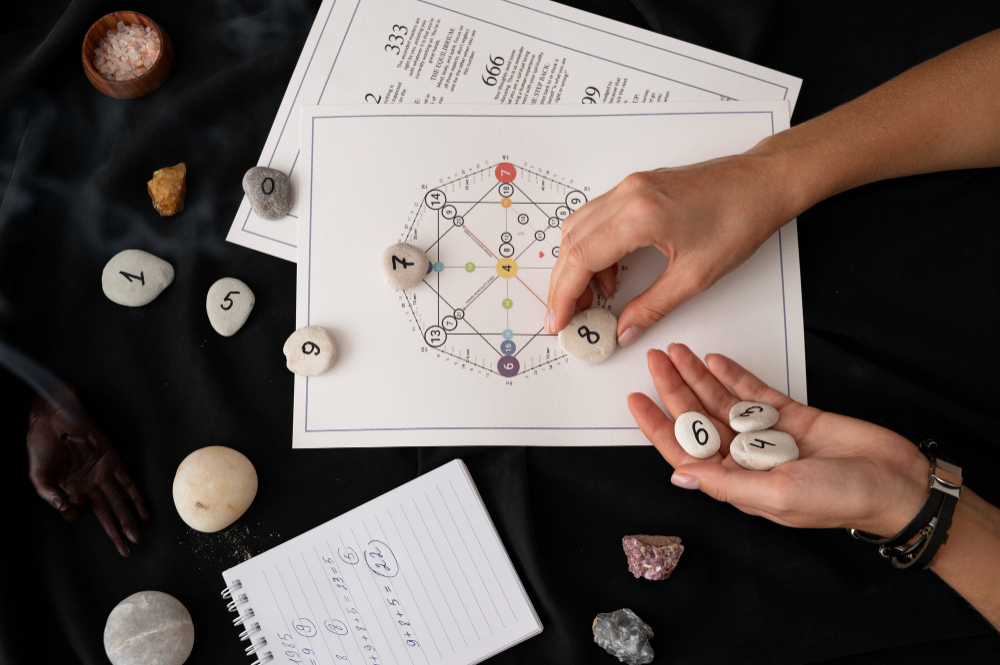Luck, a phenomenon that has fascinated and perplexed humanity for centuries, often seems elusive and unpredictable. Throughout history, various cultures have sought to unravel the mysteries of luck, fate, and destiny by turning their gaze towards the stars. Birth charts, deeply rooted in astrology, have played a significant role in shaping perceptions of individual fortune. In this exploration, we delve into the intricate web of fate, examining the historical and cultural perspectives on birth charts, the controversy surrounding astrology, and the emergence of Human Design as a modern interpretation of cosmic influence.
Fate and Birth Charts in Different Cultures
The concept of fate has been an integral part of many cultures, often intertwined with religious beliefs and celestial observations. In ancient civilizations, such as Mesopotamia, Egypt, and China, people looked to the stars to decipher the will of the gods and anticipate their destiny. The positioning of celestial bodies at the time of birth was believed to influence an individual’s personality, strengths, and challenges.
Historical Significance of Birth Charts
Birth charts have a rich historical significance, with roots extending back to ancient civilizations. The Greeks, for instance, were pioneers in connecting celestial events to human existence. Ptolemy’s “Tetrabiblos,” a foundational work on astrology, influenced Western thought for centuries, emphasizing the interconnectedness of the cosmos and human affairs.
During the Renaissance, astrology experienced a resurgence as scholars like Kepler and Galileo sought to reconcile astronomical observations with astrological principles. Birth charts gained popularity among nobility and commoners alike, offering a sense of control and understanding in an unpredictable world.
Controversy Surrounding Astrology
Despite its historical prominence, astrology has faced persistent skepticism and controversy. Critics argue that the correlation between celestial movements and individual destinies lacks empirical evidence, dismissing astrology as a pseudoscience. Skeptics contend that the Barnum effect, where individuals interpret vague or general statements as highly personal, plays a significant role in the perceived accuracy of astrological readings.
The scientific community, with its emphasis on empirical verification, remains unconvinced of the validity of astrological claims. However, for many, the allure of the cosmic connection persists, prompting a continued exploration of alternative frameworks such as Human Design.
Personalized Roadmaps: How Human Design Reshapes the Modern Approach to Fate
In recent years, Human Design has emerged as a contemporary interpretation of cosmic influence on individual lives. Created by Ra Uru Hu in the late 20th century, Human Design combines elements of astrology, the I Ching, Kabbalah, and quantum physics to provide a personalized guide to understanding one’s unique characteristics and potential path in life. That way, people can understand and learn about theirself, and even how are their luck will be appear at slot gacor 777.
Origins and Popularity of Human Design:
Ra Uru Hu claimed that he received the foundational knowledge of Human Design during a mystical experience in 1987. Drawing from ancient wisdom and modern science, he developed a system that integrates the positions of the planets at the time of an individual’s birth with the I Ching hexagrams and the Chakra system.
Principles of Human Design
Human Design categorizes individuals into four main types: Generators, Projectors, Manifestors, and Reflectors. Each type is associated with specific characteristics, strengths, and challenges. The system also considers defined and undefined centers, gates, and channels, creating a complex map that reflects the intricacies of an individual’s energetic makeup.
The BodyGraph, a key component of Human Design, visually represents an individual’s unique configuration of defined and undefined energy centers. This detailed map serves as a guide for understanding how an individual interacts with the world and processes information.
Impact on Perceptions of Luck and Destiny
Human Design claims to provide insights into an individual’s strengths and challenges, as well as guidance on decision-making and interactions. By understanding their unique energetic composition, practitioners of Human Design believe they can align with their true nature, leading to a more fulfilling and harmonious life.
The emphasis on strategy and authority in Human Design encourages individuals to make decisions in alignment with their authentic selves. By following these guidelines, practitioners aim to enhance their overall well-being and potentially influence the trajectory of their lives.
The Ongoing Dialogue Between Destiny and Human Agency
Luck, fate, and destiny have captivated human imagination for centuries, leading to the creation of diverse systems like astrology and, more recently, Human Design. While birth charts have been used across cultures to decipher cosmic influence, skepticism persists in scientific circles. The emergence of Human Design offers a modern perspective, blending ancient wisdom with contemporary insights.
Whether one puts faith in the alignment of celestial bodies or embraces the principles of Human Design, the quest to understand and shape one’s destiny remains a deeply human endeavor. The cosmic tapestry, woven with the threads of stars and energy, continues to intrigue and inspire, reminding us that, perhaps, the true essence of luck lies in slot terpercaya and the pursuit of self-discovery, also the alignment of our actions with the cosmic dance of the universe.

